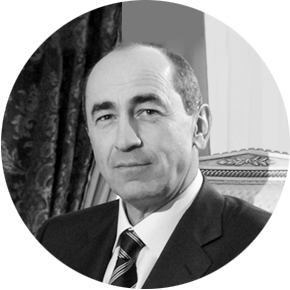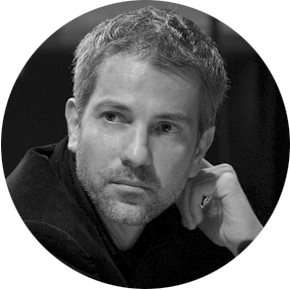Exclusive interview of second Armenian President Robert Kocharian to Mediamax
- Last month, Armenian President gave out an order to law-enforcement bodies to stir up investigation on “March 1” case. Oppositional figures and a great number of analysts and journalists immediately stated that the “arrows” of this order, just like the investigation itself, are directed against you. Moreover, opinions were voiced that this process will neutralize “Kocharian’s political factor” and will deprive you of the chance to get involved in active politics in future. Are such assessments to the point and can such development be really expected? And what is your attitude towards the order of the President?
- Yes, there were also many discussions as to who those tragic events of “March 1” were profitable for. The answer is simple: the ones, who constantly speculate for these events and definitely not the authorities, either past ones or the current. Since the general picture of the events of “March 1” is quite clear. It developed in front of the entire country’s eyes: both the actions of the opposition, and the reaction of the authorities.
Their essence is that the losing candidate stated that he was the President elect and that he intended to occupy the Presidential palace, neither more nor less than that. The situation extremely aggravated, when the opposition took up illegal actions in order to achieve that goal.
I am just reminding that the emergency situation in Armenia was introduced when dozens of cars were already burnt or plundered, when the crowd was destroying everything on its way and when the first dead and injured appeared among the policemen and the civilians, when it became clear that the situation was totally out of control and was threatening both the constitutional order and the security of people and their property. It is simply impossible to deny this obvious fact. The emergency situation was introduced according to Armenian Constitution in full compliance with the established procedures, and namely, after coordination of the issue with the Chairman of the parliament and the Prime Minister with following approval in the National Assembly. I believe this step should have been taken earlier; maybe that way we would be able to avoid casualties.
The President does not manage the reestablishment of order in the streets directly, does not regulate use of special means. This is done by corresponding executive structures within the framework of the existing laws. It is done like that in the whole world.
The investigation on “March 1” case is not carried concerning legal grounds of introducing an emergency situation order, but concerning facts of mass unrest, which led to loss of dozens of human lives. And the problem is that the investigation is failing to reveal all the circumstances of the death of people in order to bring particular people to charge or justify their actions by the motives of self defense. This circumstance, of course, makes the state of the authorities vulnerable both for the local public and for international organization. I assume that this is the explanation for the recent orders by the President. Particular results of the investigation would stop all possible speculations for this topic, and I take great interest in that.
I can say definitely that no one gave out orders to shoot people. In any case, not that I know of. Obvious is the fact that all cases of people’s deaths, except for the Captain of Internal Forces, took place in a significant distance from the venue of the rally, namely, where the cars were being burnt and the stores plundered. No one really controlled the situation there: either the police, or the oppositional leaders. I do not know what progress has been registered in the process of investigation over the past three years, but I assume that this very circumstance strongly complicates the work of investigating structures, especially since there were almost no video surveillance cameras in this part of the city in order to regain the picture of events. All eight civilians who had died were simple people, who had not demonstrated themselves in politics anyways. Four of them died from bullet wounds. But who needed to shoot them deliberately? It is either a tragic concurrence of circumstances, or someone’s deliberate actions in order to discredit the authorities.
The circumstance that none of any notable representatives of the opposition had any bodily injuries evidences that there were no deliberate actions on “beheading” the opposition either. It’s the authorities of ANM that were shooting down oppositionists that were out of favor. By the way, if the leader of the opposition did not sit at home, but tried to deter the crowd, instigated by him, I am sure, we would be able to avoid victims.
So, there is no way to direct the “arrows”, no matter how hard the ones, who are eaten up by my “political factor”, try.
- Today we observe the following situation: you do not demonstrate any political activity, however your name is in all forecasts and analytical articles every day. Moreover, the general context of Armenian press’s publication and public speeches of various political figures (in particular ones from ANC), allows assuming that the peculiarities of a political process in the country to a particular degree are conditioned by that “Kocharian factor”. How would you explain this?
- Probably, this is because the period of my presidency stood out by positive changes in the quality of people’s lives. Most apparently, some politicians are deprived of sleep because of that fact. So, the futile efforts to lessen the achievements of those years or assign them to abstract global processes, not depending on us, are conditioned by that. It is obvious that over the past years the level of people’s life significantly deteriorated, and irrespective of objective or subjective factors of that deterioration, people are inclined to compare. And the more ordinary people compare, the harder the politically committed opponents try to discredit me. Unfortunately this is the internal logics of the current processes, which does not much depend on my activity. I am sure that the people is not that naïve not to understand that.
- What is your assessment of the dialogue being established between the authorities and the opposition? How do you assess the current political process?
- This depends on the topic of the dialogue. If the dialogue concerns establishment of civilized rules of political struggle and renouncement of its radicalization, of course, my assessment is positive. Stability is a necessary condition for economy growth, and this is what Armenia needs most of all today.
This will also benefit conduct of fair elections. If the elections are held under “to be or not to be” motto, the motivation for trick shuffling increases abruptly.
But if the dialogue concerns parameters of imitation of political struggle (for corresponding bonuses), this is most likely a collusion behind the electors’ back. This, by the way, is a direct path to standstill and growth of corruption, since opposition immediately stops fulfilling its main function, namely prompting authorities to work better and be more restrained in terms of appetite. People will be the ones to pay for that collision out of their already scanty pockets.
What exactly happens between the authorities and the opposition now, I don’t know. I do not participate in that process, thank God. I only described the possible options and their likely consequences. Both variants are possible in our reality. Which one of them is being realized in practice, time will show.





















